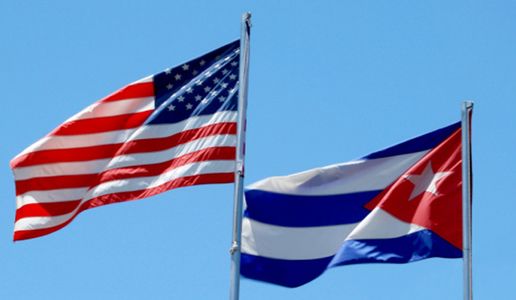Hare Interviewed by Cuba Posible on U.S.-Cuba Relations
Amb. Paul Webster Hare, Senior Lecturer at the Frederick S. Pardee School of Global Studies at Boston University, was recently interviewed on a range of topics including how U.S.-Cuba relations are evolving under the Trump administration.
Hare was interviewed for an October 19, 2017 article by Cuba Posible entitled “Paul W. Hare: “Russia, China, Iran and Others Will be Eagerly Consolidating Their Relations as the US Returns to its Role of Adversary.”
From the text of the article:
What is your analysis of the conditions in which the US government has taken these measures? Do you think these measures are appropriate?
The Trump Administration has been struggling to reconcile The President’s vision of the world of independent sovereign states which respect each other’s culture and systems of government -see his UN speech last month- and his concept that some states are evil and others good. Trump has said he wants to do what’s in America’s interest and does not want to be president of the Globe. It’s a vision that is outdated because in a multipolar world, states need to cooperate on key global issues.
Where does that leave Cuba? The Obama measures, according to polls, have the overwhelming support of the US people, and at least 70% of Cuban Americans. Neither of the two Cuban American advisers to President Trump -Marco Rubio and Mario Diaz Balart- was born in Cuba or has ever visited the island. So, it’s hard to see the rationale of what Trump wants on Cuba policy other than to prove Obama wrong. We still await what Trump plans long-term.
Trump realizes that most of the Miami/Florida electors who supported him did not do so on Cuba policy but on issues like healthcare and jobs. But he wants to give enough signs of disapproval to show that Cuba is behaving badly because that’s what Rubio and Diaz Balart want for their congressional support. On the issue of the diplomats who have been physically harmed I think there is a genuine mystery because I suspect some of the Cuban government’s newly installed surveillance equipment unexpectedly caused the harm. The equipment was removed before the FBI arrived but the Cuban government would not, for obvious reasons, admit their mistake. The travel warning seems to me a deliberate method of targeting American visits to Cuba to harm tourism.
Amb. Hare teaches classes at Boston University on Diplomatic Practice, Arms Control, Intercultural Communication and on Cuba in Transition. In Spring 2016 he will offer a new class on Public Diplomacy. His novel, “Moncada – A Cuban Story”, set in modern Cuba, was published in May 2010. His book “Making Diplomacy Work; Intelligent Innovation for the Modern World.’ was published in early 2015.
